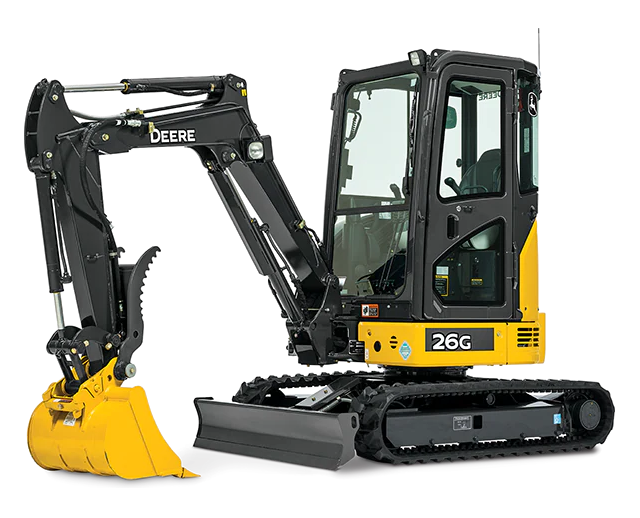Forklift Rental: Heavy Training Equipment for Warehousing and More
Wiki Article
Optimize Your Budget Plan by Comprehending the Expenses Linked With Construction Devices Rentals
Comprehending the complete range of costs associated with building tools leasings is vital for optimizing your spending plan. What approaches can be employed to properly take care of these prices and make certain an extra reliable rental experience?Introduction of Rental Expenses
When considering construction devices rentals, recognizing the connected expenses is critical for efficient budgeting and task planning. Rental expenses can vary substantially based upon numerous factors, including devices type, period of rental, and area. The initial rental charge often mirrors the equipment's market need and its linked functional abilities, influencing the general expenditure.In addition to the base rental rate, secondary prices might emerge, such as transportation costs, gas additional charges, and maintenance costs. It is vital to make up these additional expenses to properly examine the overall cost of leasing devices. The rental period can impact prices; longer rentals might certify for discounted rates, while short-term rentals may incur greater daily fees.

Malfunction of Rental Prices
A detailed understanding of rental rates is important for professionals and project managers aiming to maximize their budgets. Rental rates for building and construction equipment typically include several elements, consisting of base rates, time-based fees, and usage fees.Base rates are the core costs associated with the rental of the equipment, commonly identified by the type and size of the equipment. These rates can differ significantly, affected by elements such as tools demand, accessibility, and regional market patterns. Time-based costs, which may be daily, weekly, or monthly, offer to fit different job timelines and rental periods.
In addition, rental rates might consist of use costs, which apply when devices is used beyond a specified limit, making sure that the rental business can account for deterioration. Seasonal need variations can also affect rental rates, with peak building and construction seasons usually regulating higher prices.
Additionally, comprehending the rental business's policies relating to upkeep and insurance coverage can offer additional understanding right into the general cost structure. By analyzing these components, professionals can make educated choices, guaranteeing the choice of rental equipment lines up with both job demands and spending plan constraints.
Additional Costs to Take Into Consideration
Understanding the intricacies of additional charges is vital for specialists to manage their general rental expenses successfully. Past the basic rental prices, numerous supplementary costs can significantly impact the complete cost of equipment service. These fees often consist of shipment and pickup charges, which can differ based on distance and logistics included in moving the equipment to and from the work website.Additionally, some rental firms might enforce gas additional charges if the devices is returned with much less gas than when rented out. It is additionally important to know prospective cleansing charges, particularly for specific tools that needs extensive upkeep after use.

Extensively assessing the rental contract and clarifying these extra charges ahead of time can assist specialists guarantee and stay clear of unanticipated prices that spending plans remain undamaged throughout the job lifecycle.
Repair And Maintenance Expenditures
Normal repair and maintenance expenditures are often ignored variables that can considerably influence the total cost of building and construction tools leasings. When leasing devices, it is essential to take into consideration not just the rental charges but also the potential prices associated with maintaining the equipment in optimum operating condition.Several rental firms include standard maintenance as component of the rental agreement; however, a lot more comprehensive fixings or unexpected breakdowns can lead to added expenditures. It's vital to evaluate the rental contract thoroughly to recognize what maintenance solutions are covered and what obligations fall on the renter.
Furthermore, devices that is not well-maintained can cause ineffectiveness on duty site, possibly enhancing and causing hold-ups task prices. To alleviate these risks, it is a good idea to conduct regular assessments and preserve open communication with the rental company pertaining to any issues that occur during use.
Insurance Policy and Responsibility Prices
Insurance and responsibility costs are crucial components that can substantially impact the general expense of building and construction equipment leasings (scissor lift rental). These prices ensure that both the rental firm and the client are shielded from potential financial losses occurring from accidents, damage, or burglary throughout the rental duration
In addition, customers should understand any type of deductibles or exclusions in the insurance coverage plan, as these can influence prospective out-of-pocket expenses. Comprehending the terms of any kind of insurance policy coverage is crucial to prevent unexpected costs. Inevitably, budgeting for insurance policy and obligation costs can aid make certain a smoother rental experience and protect against monetary dangers related to building and construction tasks.
Verdict
Finally, a detailed understanding of the expenses connected with construction devices services is essential for efficient budget administration. By examining rental prices, extra fees, maintenance costs, and insurance coverage individuals, requirements and companies can reduce unanticipated expenditures. This tactical technique not just boosts cost-effectiveness yet also guarantees that tasks progress smoothly and successfully. Eventually, informed decision-making concerning tools rentals adds to the overall success of construction endeavors.Rental prices can vary considerably based on several variables, including equipment kind, duration of rental, and area (scissor lift rental). The rental period can influence prices; longer services may certify for reduced rates, while short-term services might sustain higher day-to-day fees
By conducting detailed research study and engaging with reputable rental firms, professionals can effectively browse the complexities of rental prices, ultimately maximizing their economic resources.
Past the conventional rental prices, various supplementary fees can significantly affect aerial lift rental the complete cost of devices service. Rental companies usually offer responsibility insurance that covers injuries to 3rd parties or damage to property, while devices damages insurance can cover the expense of repairs or substitute if the rented out devices is harmed.
Report this wiki page